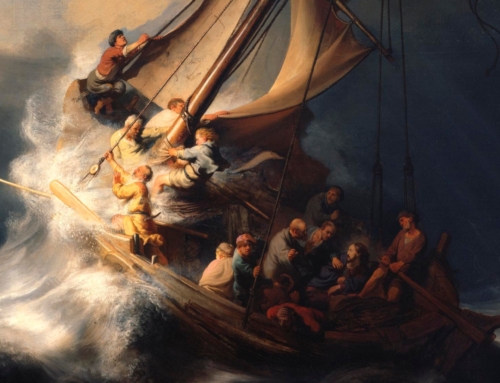For a school that forbade the use of personal CD players, St. Gregory’s Academy has produced a remarkable discography. Founded by alumni of the Integrated Humanities Program at the University of Kansas, St. Gregory’s was a Catholic boarding school that cultivated an environment in which boys were immersed in the great experiences of nature, human culture, and the Catholic faith. One important dimension of the school was a ban on the use of personal computers, television, and most forms of pre-recorded music. This strictly enforced “technology fast” created a situation in which the sixty-odd students at the Academy had to learn how to entertain themselves in the hours that weren’t devoted to rugby, prayer, and study. In this context, Irish and American folk music became a homespun soundtrack to life at the Academy, drifting down the hallway or making the rafters roar. But despite this ban on the private listening of recorded music, the students and alumni of St. Gregory’s and its successor Gregory the Great Academy have produced countless recordings of their music, entrusting their strums and voices to the carrion comfort of tape, CD, and Mp3.
One of the happy issues of this paradoxical surfeit of recordings that bear the mark of the experience of St. Gregory’s Academy is My Love, She’s in America—a recent release by The Stillwater Hobos, a group that includes several alumni of St. Gregory’s Academy. According to their website, “The Stillwater Hobos formed in 2010 one night in Galway while on the way to Rome.” This cryptic description encapsulates the spirit of the new album, which captures the spontaneity of a chance encounter of old friends and the conviviality and lonesome touch of a pilgrimage to the holy places. Mixing traditional songs with newly composed pieces, the album has a remarkable integrity that exudes a sense of magnanimity and good cheer. Among the most interesting tracks are “The Girls in Old Ireland,” a piece with mesmerizing rhythms and compelling lyrics, and “Saint Therese,” which manages to capture something of the marvelous spirit of the Little Flower without a hint of sanctimoniousness.
One of the most appealing aspects of folk music is the potential for spontaneity and creativity within the tradition that has been passed down. Although many performances or versions of folk songs have been transcribed in written form, it is difficult if not impossible to label a particular version of a song as its definitive form. A particular performer might express himself in diverse ways using the pretext of the same piece of music. Properly speaking, music only exists when it is being performed, and each performance has the potential of being a new revelation of the inherent beauty and meaning of a particular piece of music. Even if the notes, words, and timbre remain constant from one performance to the next, a singer or musician is always performing at a particular moment, in a particular context, and this gives each performance an individual and unrepeatable character. In a certain sense, one cannot play the same song twice.
In this context, the idea of making sound recordings of folk music has a paradoxical character, for at best you are only capturing a particular moment in time, a particular angle on a piece of music, one side among the many that can potentially reveal themselves in different performances and contexts. The words of Socrates in the Phaedrus concerning writing can easily be adapted to the ambiguities that attend the recording of a musical performance:
I cannot help feeling, Phaedrus, that writing is unfortunately like painting; for the creations of the painter have the attitude of life, and yet if you ask them a question they preserve a solemn silence. And the same may be said of speeches. You would imagine that they had intelligence, but if you want to know anything and put a question to one of them, the speaker always gives one unvarying answer. And when they have been once written down they are tumbled about anywhere among those who may or may not understand them, and know not to whom they should reply, to whom not: and, if they are maltreated or abused, they have no parent to protect them; and they cannot protect or defend themselves.
Human beings, fortunately enough, often don’t seem to be terribly weighed down by the existential irony that attends such reflections. Fair enough, we admit with Socrates—and yet we are happy that Plato has taken the time to write down these musings. Similarly, although recorded music cannot capture the thing itself, we can be grateful that that night in Galway has left lasting repercussions.
✠
Image: The Stillwater Hobos, My Love, She’s in America







